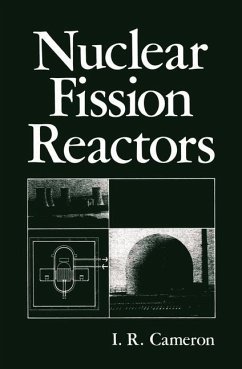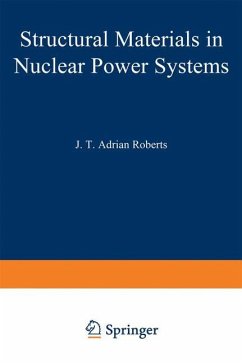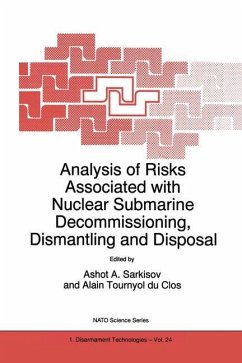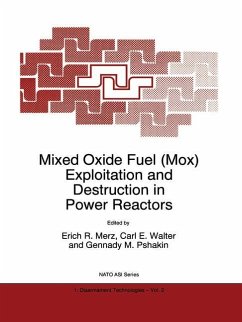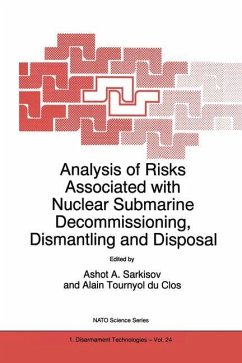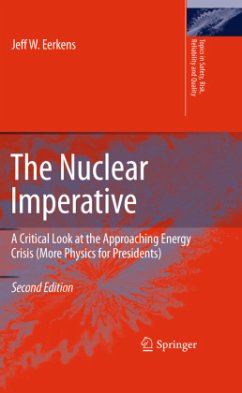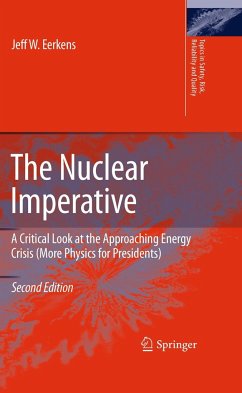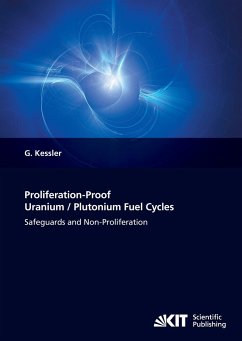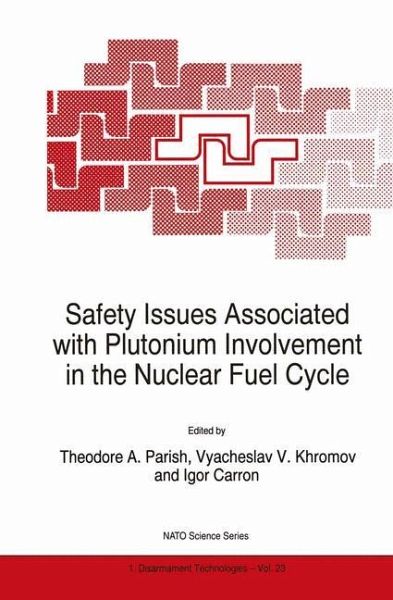
Safety Issues Associated with Plutonium Involvement in the Nuclear Fuel Cycle
Versandkostenfrei!
Versandfertig in 1-2 Wochen
138,99 €
inkl. MwSt.
Weitere Ausgaben:

PAYBACK Punkte
69 °P sammeln!
The "VOLGA" conferences, hosted in odd-numbered years by the Department of Theoretical and Experimental Reactor Physics of the Moscow Engineering Physics Institute (MEPhI), are some of the most prestigious technical meetings held in Russia. Traditionally, these conferences present the opportunity for reactor physicists from around the world to gather at MEPhI's holiday camp on the banks of the Volga river (near Tver) to exchange ideas and explore innovative concepts related to nuclear power development. In 1997, NATO became involved in the "VOLGA" meetings for the first time by co-sponsoring "...
The "VOLGA" conferences, hosted in odd-numbered years by the Department of Theoretical and Experimental Reactor Physics of the Moscow Engineering Physics Institute (MEPhI), are some of the most prestigious technical meetings held in Russia. Traditionally, these conferences present the opportunity for reactor physicists from around the world to gather at MEPhI's holiday camp on the banks of the Volga river (near Tver) to exchange ideas and explore innovative concepts related to nuclear power development. In 1997, NATO became involved in the "VOLGA" meetings for the first time by co-sponsoring "VOLGA97" as an advanced research workshop. This workshop broke with tradition a bit in that the venue was moved from MEPhI's holiday camp to a location nearer Moscow. The workshop program was effectively organized in order to cover a broad range of topics relating to the theme of the meeting. Generally, the papers concerned safety related questions associated with utilizing both weapons-grade and reactor-grade plutonium in the nuclear fuel cycle, including facility requirements, licensing issues, proliferation risks, and a variety of advanced concepts for alternative fuel cycles. The program contained a total of ninety-nine papers presented in five days of sessions.





